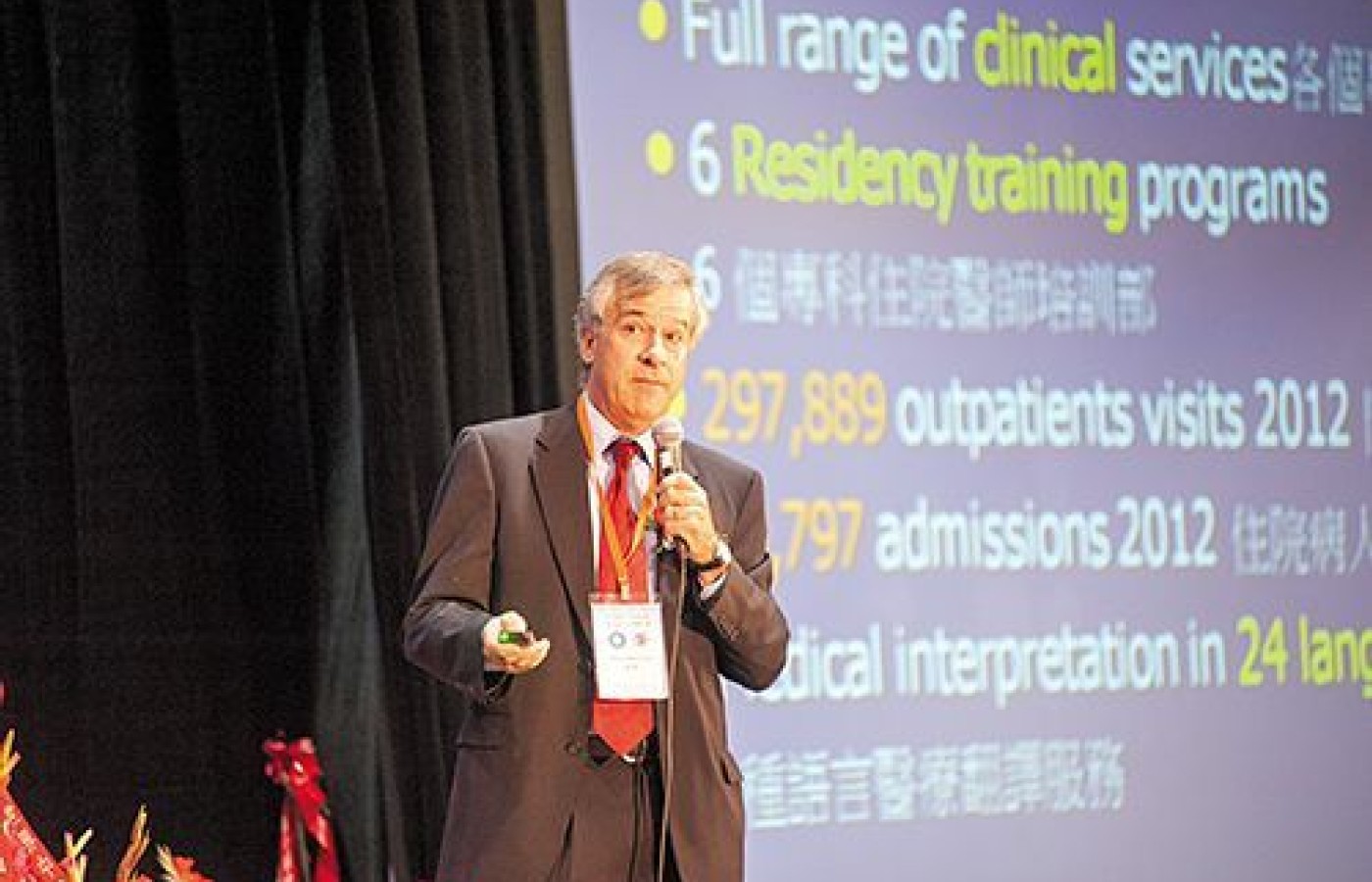The most important relationship I seek to nurture in the treatment room is the one a patient has with their own body. We live in a culture that teaches us to override pain, defer to outside authority, and push through discomfort. Patients often arrive hoping I can “fix” them, but the truth is, we can’t do the work for them. We can offer guidance, insight and support, but healing requires their full participation.
10th World Congress of Chinese Medicine Aims to Bridge East and West
By working together with Western medicine doctors, Eastern medicine practitioners can open new doors for Traditional Chinese Medicine and expand the reach of people in need of healing, said Li Zheng Ji, vice chair and secretary of the World Federation of Chinese Medicine Societies at the 10th annual World Congress of Chinese Medicine, held Sept. 21-22 in Santa Clara, Calif.
Li Zheng Ji, along with more than 600 attendees from around the world, convened for the two-day conference at the Hyatt Regency Santa Clara to discuss topics that revolved around this year's theme, "Cooperation Between Eastern and Western Medicine, Better Health Services for People Around the World." Those is attendance also participated in an array of seminars and workshops. The event was co-hosted by the American Association of Acupuncture and Oriental Medicine (AAAOM).
"Our hope is that we can bring attention to the need for more Traditional Chinese doctors to be well versed in Western medicine and more Western doctors to be well versed in Traditional Chinese Medicine," said Li Zheng Ji via his translator, Xiao Ying. Li Zheng Ji, who traveled from the Beijing headquarters of the WFCMS for the event, noted that the goal of the conference this year was to bring together various ideas and research that can ultimately result in stellar patient care through a combination of Eastern and Western medicine.
Some of the workshops offered included: in-depth research topics such as AIDS/HIV and Traditional Chinese Medicine, psychology and sleep, the future and development of Chinese Medicine in the United States, integrative research and study presentations that ranged in topics from acupuncture treatment of cerebrovascular diseases with 300 case analyses, to laser acupuncture for diabetics and infertility trials.
Li Zheng Ji said this year's event brought in an impressive amount of paper submissions that reflected high quality as well as noteworthy turnout.

She Jing, chair of the World Federation of Chinese Medicine Societies, said she felt the biggest highlight of the conference was the keynote speech by Dr. Colin M. Feeney, recently named one of the Top Ten Doctors by US News & World Report. Dr. Feeney has been instrumental in bringing an innovative program of Integrative Medicine to Highland Hospital, Alameda County Medical Center, in Oakland, Calif.
Dr. Feeney used his keynote speech at the conference to discuss the challenges encountered and the strategies used to develop the ground-breaking program from his perspective, and shared the vision for its continued development.
"I think this [is] a good example that many other hospitals in the United States should follow," said She Jing via translator. "If more [Western] hospitals would offer patients the option of Traditional Chinese Medicine, there could be bigger advances for acupuncturists in the U.S."
She Jing also noted that patients need to know about Traditional Chinese Medicine in traditional Western settings and recognize it as a good option for their health conditions. She cited a recent World Health Organization report that highlighted the benefits of Traditional Chinese Medicine in a medical setting when Western medicine cannot help with certain health issues.
"If doctors meet more problems they cannot solve with Western medicine then there will be more patients who will have a need for TCM and we can move toward achieving our goal of coming together with Western medicine," said She Jing via her translator.
In previous years, the conference has been held around the world in global locales ranging from Toronto to London, Singapore, Australia and Malaysia. The international academic organization WFCMS, headquartered in Beijing, is active in pushing forward the health development of Chinese medicine worldwide.
Li Zheng Ji said that every year, the Congress has managed to make a major impact in one form or another. For example, in 2011, the conference was held in London and had up to 13 billion searches on China's search engine, known as Biadu, which is similar to Google.
Li Zheng Ji said the conference always manages to accomplish its number-one goal of bringing attention to the core message of his organization, which is to let more people knowabout the effectiveness of TCM.
"Although TCM originated in China, it is now beyond boundaries and is able to solve many health problems. This is its strength," said Li Zheng Ji via his translator. "TCM pays more attention to people's balance and has great efficacy to help people recover from diseases."



